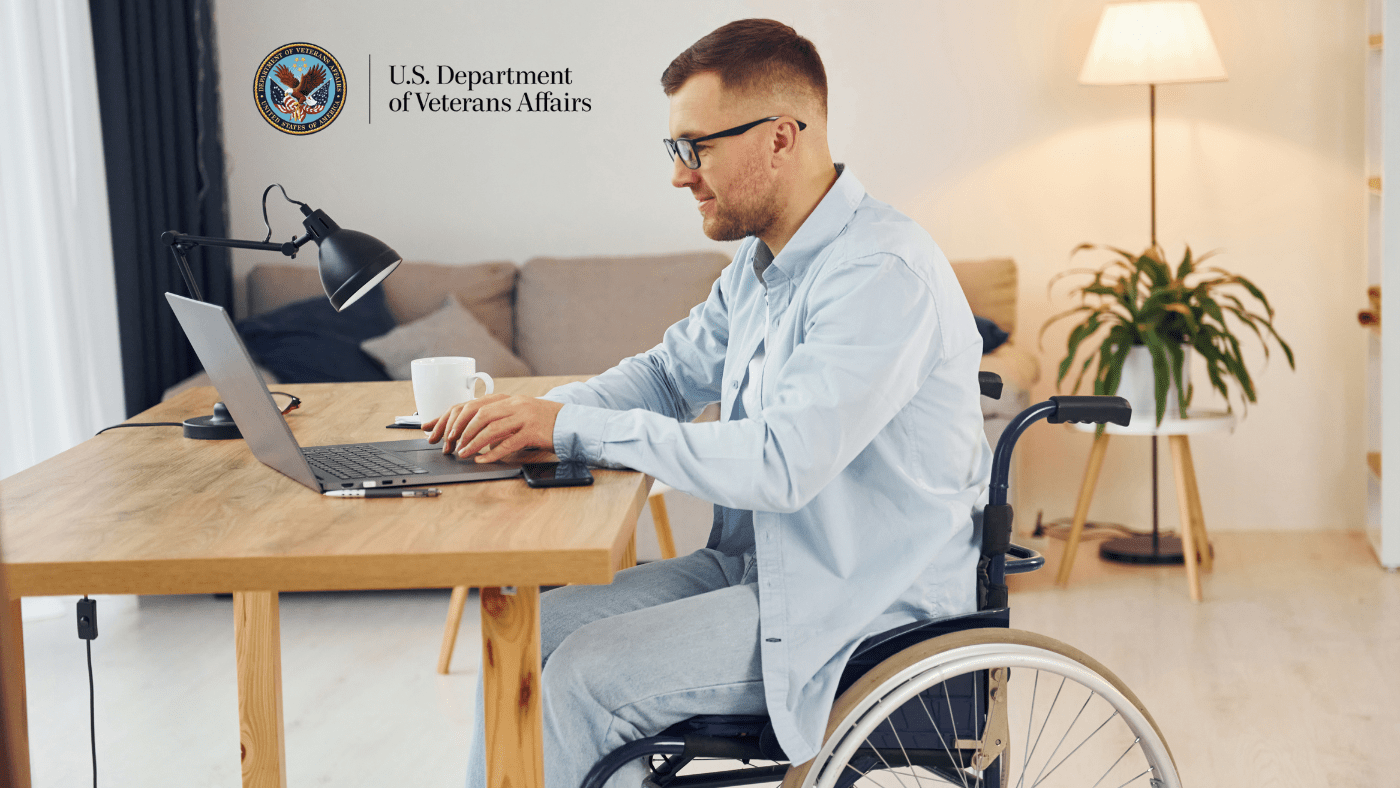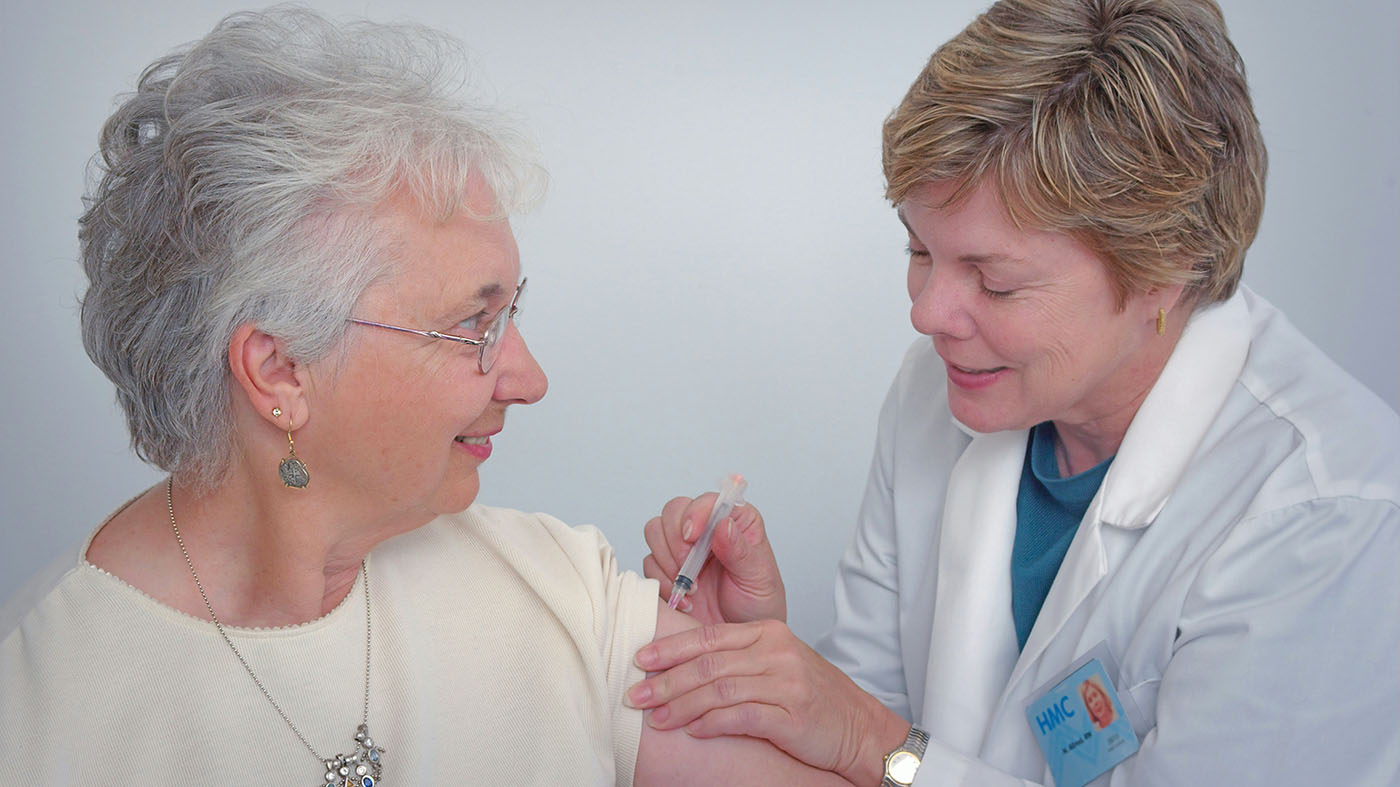The headlines circulating the Internet hours after the tragic Fort Hood shooting were vague, but the implications for Veterans who have been diagnosed, or are seeking treatment, for Posttraumatic Stress Disorder (PTSD) are not.
As some major media outlets rushed to find a reason for Wednesday’s mass shooting, they jumped on the fact that the accused gunman was being evaluated for PTSD.
With a few keystrokes, assessing troops for PTSD became a kind of litmus test for future violence. Nothing could be further from the truth, and this isn’t the first time speculation has blurred the line between what PTSD is and its social stigma.
The truth is that research shows most Veterans (and non-Veterans) with PTSD are not violent. In fact, propensity for violence is not even included in the list of “common problems” associated with PTSD that the center provides on its website.
Paula Schnurr, acting executive director of VA’s National Center for PTSD, expressed her concern that equating PTSD with aggressive behavior was presenting a negative image of those affected by PTSD, which perpetuates a stigma that can prevent Servicemembers and Veterans from reaching out to seek help.

The “crazy Veteran” narrative is damaging to the millions of Americans who have served in the military and now form the backbone of their communities.
“Rambo is not the face of PTSD,” Schnurr told the Desert Sun yesterday. “It’s extremely important that we recognize that the majority of people with PTSD don’t engage in criminal and violent actions. And it’s really important to provide accurate information about what PTSD is and what it isn’t.”
Fighting the “crazy Veteran” narrative is something VA and Veterans advocates have been doing for decades, because it’s damaging to the millions of Americans who have served in the military and now form the backbone of their communities. It can also make those who need to connect with help for PTSD wary of a diagnosis.
Former infantry officer Ben Diaz has seen it first-hand during his time in the Marine Corps.
“What happens is that [Servicemembers] don’t want to get help because they don’t want to get lumped in with what society thinks of Veterans with PTSD,” Diaz said from his home in Texas. “It’s unfortunate that PTSD has become a go-to term for the media when it comes to explaining bad behavior among Veterans. It’s creating a skewed image of how the public perceives those affected by PTSD.”
PTSD has different characteristics for different people, and exposure to combat isn’t the only way a person can become affected by it. It’s a normal reaction to a terrible event. To try to force a “violent Veteran” story – willingly or not — is both irresponsible and counterproductive.
It is important to note that not everyone in the media had it wrong on Wednesday. A quick search of the Veteran issues beat reporters showed a more nuanced approach to the story. We urge others to follow their lead and educate themselves on the issues affecting Veterans today before writing their next headline or tweet.
What gets lost when tragedies like the shooting in Fort Hood occur are the qualities most Veterans possess such as willingness to sacrifice for others, discipline, responsibility and teamwork. It is important to not allow events such as this to paint a negative picture of all Veterans.
Learn more about PTSD and how to get help at www.ptsd.va.gov.
Topics in this story
More Stories
Over the five-year program, more than 14,000 VET TEC beneficiaries completed their program and nearly half have reported finding meaningful employment with an average starting annual salary of $65,000.
VA is calling for applicants for the 2024 Specially Adapted Housing Assistive Technology grant.
Updated COVID vaccines are available free of charge to Veterans receiving care at VA .









What a load of crap. I have PTSD, I am angty all the time, it takes very little to set me off. Luckilly I haven’t hit anyone yet. Although I have come very close. The military doesn’t diagnose PTSD, because then you’re non-deployable. All they care about are bodies to deploy. The VA won’t officially diagnose PTSD, because then they have to pay you. SO we go on struggling, until we snap.
My husband received a psych eval in Bahrain. The doctor’s report stated that he had both suicidal and homicidal ideations. His anxiety level was interfering with both his work and personal life.
**End result: Service member is fit for duty. I strongly recommend following up with deployment health upon return to the states.
Once they returned to the states and he did seek help as required by his command, his Lt. Col called every Dr. my husband saw as soon as he found out the Dr’s name and told them my husband was a liar and there was nothing wrong with him and told them not to believe a word he said. WTH
He has since been diagnosed with PTSD, TBI, Major Depressive Disorder with psychotic features along with a dozen other things.
As in all walks of life, trauma will either terrify a person or justify an already evil heart. The latter thankfully, is only a tiny fraction of those that suffer PTSD and would have come to that end, one way or another.
I just finished re-reading the book “Who Moved My Cheese?” and I want the active military and VA to know that they need to stop “Hem”ming about PTSD treatments. The “Cheese” moved many years ago . . .and it’s time to find and incorporate such healing treatments as massage, acupuncture, polarity, aromatherapy, horticulture –the list goes on.
If history is allowed to repeat itself, Walter Reed Army Hospital treated WWI “shell shocked” patients with massage. Visualize a room full of soldiers all getting their backs “rubbed.” Google it.
One therapeutic massage . . . .can help.
I suffer with PTSD and if there’s things to scare me because I’m unable to run away immediately sets of a trigger to where I get angry and I or whatever is around me away so yes PTSD can end up in violence.plus every branch of the military tells you not to say anything about PTSD because they don’t want to admit that it’s a problem but they’re finally starting to come around to taking care of it.
How correct you are,I am a Australian Digger who fought in Vietnam,and suffer from PTSD,where we run a very good service,and more and more will contiue to seek help with other Wars. Brian
I’ve known for a long time that those who have PTSD isn’t a problem. Making sure their meds are the right ones is. Yes, you read that right. I’ve also known that our vets are being attacked & are being used as escape goats as well as another reason for gun grabbers to do just that. Well, I’d rather have a vet standing by me with a gun & not need it than one standing by me & not having one when we need it. You see what the government & the news station fail to tell is the truth. Shocking isn’t it? They are afraid of our vets & their families having guns. But they aren’t afraid to honor their end of the contract our vets sign when they enlist into the military. They forget to tell how they are why our vets don’t get the help or the right meds some need. They forget to admit that when our vets get out of the military they have a hard time getting help when they need it. How do I know what I’m saying? That’s easy for years I’ve been speaking up & even told the military that this is wrong for them & the government to do. It’s just like our government has also already said,” officers on duty are safe to have guns. But when they are off duty they shouldn’t have guns.” Excuse me? Will someone explain to me why those same people have body guards who have guns? Yet they aren’t spose to like guns.. gee, those body guards also protect their families. Our vets stood up for our country & our freedom & rights. The only way to stop the stigments towards our vets is for our government to stop doing this to them. Stop using our vets for their gains to control & get their way on things. To stop using all of the people for their little power trip for world power. IF they don’t like America being free & strong, they should go to the countries like how they want to make America be. Leave our military alone, let our country stand tall & proud!
It seems the media of today is doing its best to repeat that which the media of the Sixties and Seventies did to returning Vietnam veterans; paint us all as Rambo, potential violent murderers of the innocent because of our military training and service to our nation. The media does love to frighten the public, does it not, no matter whose reputation gets damaged in the process? This man was under evaluation but had not even been diagnosed with PTSD, as the AP headline would have you believe. Even if he had been diagnosed, should we now look at all returning veterans through suspicious, fearful eyes? There are plenty of civilian nut jobs out there who have gone off the deep end and committed violent multiple murders, yet the media loves to just assume, because this man wore the uniform of the U.S. military, his violence must stem from his service. Attitudes like this only make those who have served feel ostracized, isolated and unappreciated. Our service men and women deserve better than this. Shame on the AP.
Make this go viral. Everyone in the country must see this.
Please, please, please– do not let uninformed, quick to judge individuals and media influence our perception and understanding of PTSD and how it REALLY affects those suffering from it.
It is extremely important that this diagnosis is not negatively portrayed so that those that can be helped–will consider asking for it. Especially soldiers returning home and attempting to be “normal” again.
There is absolutely no proof that a PTSD diagnosis will automatically manifest in violent behavior. And not all those diagnosed with PTSD are veterans. Maybe we should all stop being “experts” and start listening and learning from those that can teach us about what is really happening to them.
We are supposed to be here to help each other- not make a bad situation worse!
Well written. And very true words. People are extremely ignorant on the subject.
the fact that PTSD can happen to all walks of life and is not the underlying (most likely) cause of a tragic situation may be what keeps many people from seeking the help they need which might allow many to lead a much easier and more productive life. We need to educate both the public and the medical communties about the fact that stress is a normal part of life and the techniques of how to best manage that. Too often a medical professional will make things worse by prescribing instead of actually treating the need in the best way. Perhaps someday, there will be good answers.
Nicely said, but unfortunately PTSD is not the result of stress, but a normal response to an abnormal situation. No amount of skill in stress management is going to prevent you from having a trauma response. But there are ways of dealing with life after that prevent you from being stuck in that response.
I believe the DOD and the VA are living under a rock. It is also my belief, as a 50-year survivor of PTSD, that the reason more violence is not done by PTSD victims is that they have not, through the grace of God and a lot of hard work in recovery, committed any acts of outward violence. You might want to check on their home life and find out how much rage and/or violence occurs there.
I am almost 32 years clean and sober and that again is because of my hard work and diligence on my part and the PTSU in Waco Texas. Alcoholism, after Vietnam, is the reason I resigned my commission at the rank of Captain. I could no longer lead men as I once did in Vietnam.
Life was a continual struggle after Vietnam but with alcohol and drugs – prescribed by the VA – I was able to exist until I got clean and sober in 1982.
Even today I will have outbursts and because of my awareness of the possibility I do not own a gun. If I did own a gun or weapon, my outbursts may not be relegated to breaking things or screaming at my wife, but I just might get out the gun – and then what?
I believe every veteran returning from combat has some degree of PTSD, and subject to fits of rage or uncontrollable anger.
Today’s veteran is between a rock and a hard place. If they own up to having the symptoms of PTSD before they are discharged they will be denied discharge and will need to undergo mental health evaluations and treatment. Somehow the stigma of PTSD must be removed from society as the disease of diabetes is. the VA and DOD must provide proper treatment, not monthly visits to the psychiatrists; but rather weekly visits and maybe even confined treatment for a period of time.
I used to meet many veterans at the local USO and was struck by the dysfunction many of them had. It is said to identify an alcoholic or drug addict you need to have been one, and the same goes for PTSD. I am one and can spot one just by talking with them.
Please! Do something to help the returning combat veterans.
Thanks for listening.
I am confused. I have been seeing a psychiatrist for 13 years. He has been treating me for PTSD among other mental diseases. I go to a VA psychiatrist in Tampa, Fl, After one hour he tells me that I do not have PTSD because I have not been locked up. Since I have not hit someone and been locked up, according to him, I do not have PTSD, and he said I am takeing too much medicine.
Now you are saying that people with PTSD are not necessarily violent. Sounds to me like I’m getting the old VA two step! All I asked for was a little help, but he could not be bothered. I was looking for a peer group and he couldn’t have helped me less.
So thank you VA for your concern and your valuable help!
I can honestly say, if that is exactly what happened, then I sympathize with you – if that psychiatrist’s decision was based on your lack of jail time they are terrible at their job. I couldn’t imagine using that as criteria, and can say without a doubt that this was an exception, not the rule. It’s funny that in a story about stigmatizing Veterans on the basis of one individual, we are now stigmatizing the entire VA based on one individual. I recommend seeing a psychologist for that evaluation.
Stephen, I agree with you, but I have also found the VA in general to be out of touch with the needs of Veterans…Mental Health Care has really been a crap shoot for me and you just have to keep throwing the dice until you find someone helpful. I won’t bore you with tales of incompetent, but I will say when the doctor sounds, crazy, off the mark, or just out of touch you should pick up your things and walk out.
Get a 2nd opinion. We are trained and have taken an oath to Protect and Defend. We have never Un-Taken our vow to uphold this. Typical hospital people are very Liberal and like Nancy Pelosi will paint former Military as potential Terrorists. Liberal Hollywood paints us as crazies in movies yet when you think of who the real crazies are is the Liberals in hospitals who are sworn to protect life yet will use a vacuum tube to suck a Baby out of the Womb one limb at a time and call it Pro-Choice. How crazy is that? Where is the Baby’s choice? Everyone is supposed to have the Right to Life, Liberty and the Pursuit of Happiness.
Thats so terrible, my husband is also a combat veteran who received similar treatment in IL but moving to TX really benefited him as the people seem to care personally about helping, at least where we live. He now goes to group sessions every week, we go as a couple as needed and I attend a support/information spouses group weekly as well. This has all really helped him.
On a note about the story, my husband has never been violent to our son or to me. Worse thats ever happened (and rarely at that) Is screaming matches in which we both are at fault and happens in any relationship.
I agree w/ Stephen. If it happened as you say, that individual psychiatrist is way off base. But don’t paint with such a broad brush. I thank God everyday for my VA therapist.
Seek another opinion. Discuss it with your 13 year therapist. Keep looking for a support group. Visit another VA facility.
Talk to a VA psychologist working with PTSD related issues. My experience with the VA is that their psychiatrists are overwhelmed maintaining medication reviews. Their social workers and psychologists do the heavy lifting.
Lastly, this may or may not apply to you. Be sober. This is , by my experience, essential to achieving improved mental health.
Sounds like you need to give them the old one-two punch ! :0)